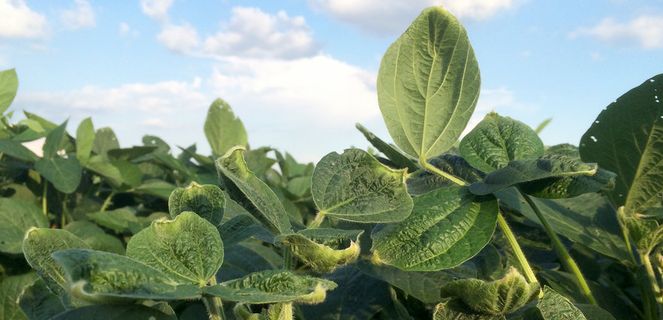Dicamba on the verge of being banned in 2018
by January 16, 2018 6:30 pm 543 views

Arkansas is one step away from banning the controversial herbicide dicamba for virtually all of the 2018 growing season. Members of the Administrative Rules and Regulations Subcommittee of the Arkansas Legislative Council voted Tuesday afternoon to ban dicamba from April 16 through October 31. The final decision will be rendered by the full Arkansas Legislative Council on Friday (Jan. 19).
Pastures, rangeland, turf, ornamental, direct injection forestry, and home use are exempt from rule.
The Arkansas State Plant Board (ASPB) voted in late 2017 to ban its use after a slew of drift-damage related complaints were filed with the board. A task force was appointed by Gov. Asa Hutchinson to study the issue and it made the ban recommendation to ASPB.
The subcommittee considered the ban Dec. 12, but several legislators had concerns about potential alternatives. ASPB was asked to consider three separate criteria in any revision of the rule. The board was asked to consider scientific-based evidence; a dividing line to create north and south use zones across the Delta; and ambient temperature and humidity applicable to temperature inversion during night hours. Board members ultimately decided to adhere with the task force recommendation.
Arkansas Agriculture Secretary Wes Ward previously told Talk Business & Politics a decision needs to be made soon. Farmers have to make decisions such as what herbicides to use as soon as possible. Not knowing what will or will not be allowed may have already impacted farmers financially.
Many companies offer incentives to lock in use of their products months before the season starts, and this decision was expected to be made months ago. Ward thinks Arkansas will stay in the national spotlight on this issue no matter what the legislature decides.
“It has been a very divisive issue. It has been a very difficult issue,” Ward said.
Farmers have been deeply divided on dicamba.
ASPB made the decision to ban dicamba after it received about 1,000 damage complaints, primarily in Northeast Arkansas, starting in May potentially caused from dicamba drift.
The decision was controversial, but the board decided the risks were too significant in imposing the ban and steeper penalties for misuse. The herbicide is a proven pig weed killer, one of the strongest nuisance weeds in the Delta. A contingent of farmers have argued the herbicide is the best option for weed control.
Dicamba has been banned in several states. Dicamba has been used as a herbicide for more than 50 years to manage 200 broadleaf weeds. It is a Weed Science Society of America Group 4 synthetic auxin – a plant hormone that causes plants to exhibit uncontrolled growth, according to the University of Arkansas. It is more volatile in warmer climates.
ASPB decided earlier this year to allow one formulation, Engenia dicamba, to be used in the state to fight pig weed, an aggressive weed that has plagued farmers in recent years. About 35% of the state’s 3.5 million soybean acres were planted with genetically-altered dicamba tolerant seeds. About 75% (300,000 acres) of the state’s cotton crop was planted with dicamba resistant seeds.
Scientists theorized dicamba was drifting into adjacent crop fields, gardens, and other places. Misapplications, weather conditions, or some other unknown factors may have caused the alleged drift. Tests proved the new formulations were less volatile than older ones, but there was still volatility, and it could last up to 36 hours after it was sprayed. Dicamba can attach to dust particles, meaning it can travel much further from target sites than previously thought.
